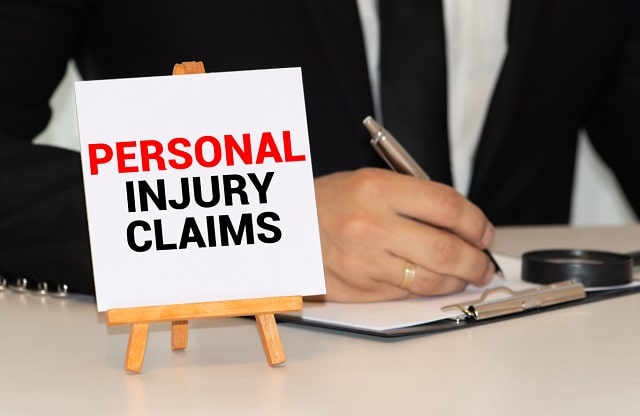
Navigating the intricacies of a personal injury claim can often be a daunting task. For many, the uncertainty tied to the duration of the claim's settlement adds to the stress. After all, when someone's health, finances, and overall well-being are at stake, it is only natural to seek clarity. This article aims to shed light on the entire settlement process, breaking down each stage to provide a clearer picture. Just as organizations like Turner Freeman offer insights and support in such matters, this post aims to guide you through this complex landscape.
Introduction To Personal Injury Claims
Personal injury claims emerge when an individual suffers harm, often physical, due to another person or entity's negligence or intentional act. The injured party pursues compensation for damages like medical expenses, lost wages, and pain and suffering. But how long does it actually take to reach a settlement? This question is especially important because, during this waiting period, medical bills can pile up, and the injured individual might not be able to work. Understanding the typical timeline can offer some relief by setting realistic expectations, thus making the whole process less overwhelming.
Initial Steps And Reporting
1. Reporting The Injury
Once an injury occurs, it is crucial to report it immediately. This could be to law enforcement in case of accidents or a manager if it happened at work. Prompt reporting ensures that all details are fresh and documented.
2. Seeking Medical Attention
No matter the severity, always seek medical attention after an injury. This guarantees that injuries are treated promptly and creates a medical record that can be crucial for the claim.
The Role Of Investigation
After reporting and getting medical treatment, an investigation begins. This involves:
1. Gathering Evidence
Collecting relevant proof is crucial for strengthening a claim. This includes taking photos of the injury scene, securing witness accounts, preserving any physical evidence, and noting down immediate feelings or symptoms. All these elements combined can play a pivotal role in building a compelling case.
2. Hiring An Attorney
Many people seek an attorney's guidance when navigating a personal injury claim. Engaging with a legal expert can simplify the process, clarify rights, and potentially increase the chances of a favourable outcome. Their expertise can be invaluable, especially when negotiating settlements or understanding intricate legal nuances.
3. Determining Liability
A thorough evaluation occurs to ascertain who's responsible for an injury. Evidence, witness testimonies, and event details are meticulously scrutinized. This step is crucial, as identifying the liable party accurately ensures a fair resolution for everyone involved.
Negotiations And Settlement
1. Starting Negotiations
Once liability is established, the dialogue for compensation begins. This step sets the tone for potential settlement outcomes. Open communication and a clear understanding of both parties' perspectives often lead to swifter resolutions.
2. Settlement Offers
The liable party may present a settlement offer based on their assessment of the claim's value. This initial proposition represents an amount they believe adequately compensates for the damages incurred. The injured party needs to review this offer thoroughly, considering both current and potential future costs related to the injury. Accepting or declining this offer is a pivotal decision in the claim process.
3. Rejections And Counteroffers
A counteroffer can be made if the initial offer is deemed insufficient, potentially extending the negotiation phase. This back-and-forth can be a delicate dance, requiring patience and strategy as both parties strive for a fair resolution.
Potential Litigation
In some cases, parties can't agree on a settlement. This could lead to:
1. Filing A Lawsuit
If negotiations stall, the injured party might decide to file a lawsuit, seeking a court's judgment on the matter.
2. Discovery Phase
Both parties exchange information in a detailed process known as discovery. This can take months, sometimes even years.
3. Going To Trial
The case goes to trial if an agreement isn't reached during discovery. A judge or jury then decides the outcome.
Factors Affecting The Duration
Several factors can influence how long it takes to settle a personal injury claim:
1. Severity Of Injury
Serious injuries often mean more medical records, treatments, and expenses. This could extend the claim process.
2. Clarity of Liability
The claim might be resolved faster if it is clear who is at fault.
3. Willingness To Settle
The claim can conclude quickly if both parties are eager to settle. However, if one party is uncooperative, it can drag on.
Claims Conclusion
Settling a personal injury claim isn't always straightforward. The process can range from swift and simple to lengthy and complex, depending on various factors such as the severity of the injury, clarity of fault, and the willingness of parties to agree. Remember, gathering all relevant information, possibly seeking expert advice from firms like Turner Freeman, and remaining patient throughout the process is essential.
By understanding what is involved, individuals can better manage their expectations and make informed decisions during their journey to a fair resolution.
